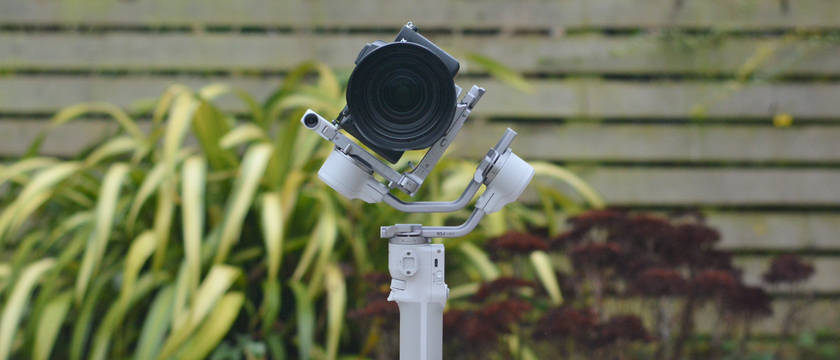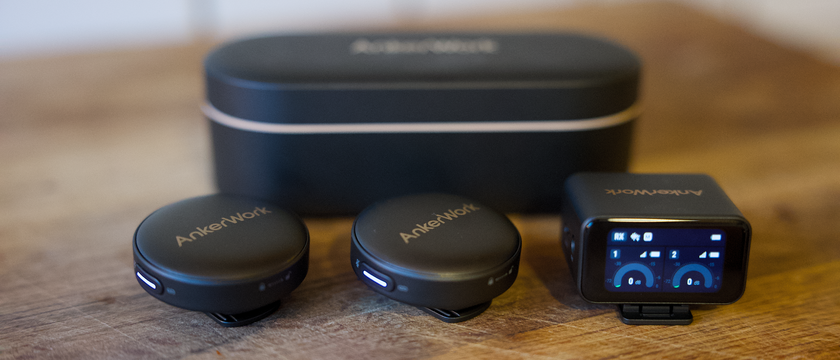The best travel tripod for 2025: finest lightweight tripods for your camera
Super-portable, sturdy and innovative camera supports
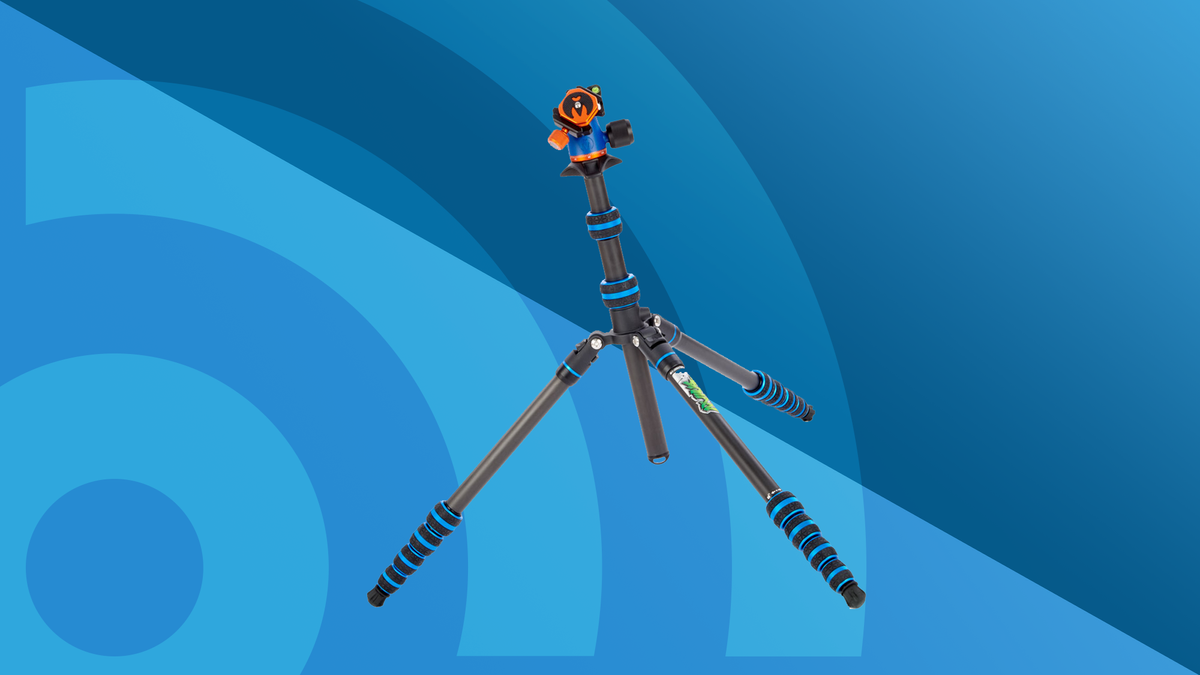
We’ve tested tripods of every size and design. In our experience, the best travel tripods combine a lightweight build and compact proportions, without sacrificing that all-important stability. Some options are cheap and simple, while others offer pro-friendly features at a higher price. You’ll find a full range of travel tripods recommended for different buyers and budgets below.
If we were buying a travel tripod in 2025, we’d go with the 3 Legged Thing Punks Brian 2.0. It ticks all of our boxes for a reliable tripod: its lightweight, looks good and stands tall. It can also convert into a monopod and support loads of up to 14kg. That said, there are cheaper and lighter options which might suit you better.
This guide is designed to make it easy for you to find your ideal travel tripod. Every recommendation is based on the feedback of our experienced reviews team. Our experts have tested each tripod in real-world conditions. In case you’re not sure what to look for, we’ve also shared some expert buying advice down at the bottom.
Top 3 picks
If you're short on time, use our quick round-up below for an overview of the the best travel tripods. Use the links to jump to our full write-ups for more in-depth coverage.
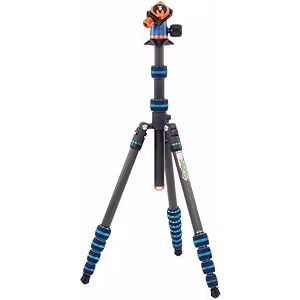
The best travel tripod overall
Boasting a full height of 73.2 inches / 1.86m and a stylish design, this tripod has a truly impressive specification for the price.
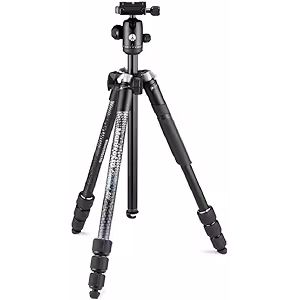
The best travel tripod for a budget
Manfrotto's budget offering ticks all the boxes when it comes to delivering the basics at a good price, making it a great first tripod.
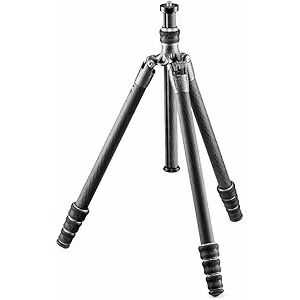
The best premium travel tripod
Smooth operation and build quality that will last a lifetime make this the right tripod for those who are willing to pay more for the best.
Best by use-case
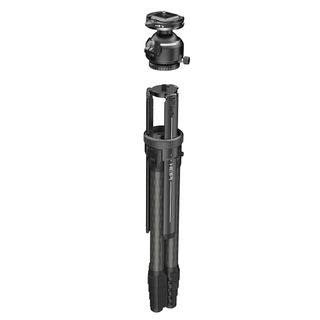
The best modern travel tripod
A three-in-one tripod with an innovative yet lightweight design, this one can cover all kinds of scenarios without much compromise.
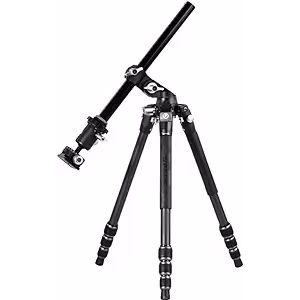
The best travel tripod for versatility
With an articulating center column, this heavy travel tripod is able to capture unique angles while providing great stability.
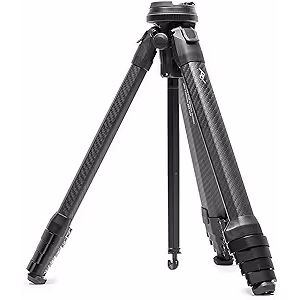
The best travel tripod design
One of the most compact options around, this tripod makes for a great travel companion, albeit at quite a high cost.

Tim is TechRadar's Cameras Editor. With more than 15 years' experience as a photographer and tech journalist, he's had the opportunity to shoot with a whole range of tripods. As a keen wildlife photographer, he also practical experience of what makes a tripod easy to travel with. Tim notes, "I like to keep my kit bag light, but because I enjoy landscape photography especially long exposures, and shooting video, a tripod is a key accessory. Travel tripods help keep the weight down."
The best Travel Tripods in 2025
Why you can trust TechRadar
Below, you'll find full write-ups for each of the best travel tripods in our list and a link to a full review. We've tested each one extensively, so you can be sure that our recommendations can be trusted.
The best travel tripod overall





Specifications
Reasons to buy
Reasons to avoid
✅ You want a great-value tripod: Offering pro-friendly features at a very competitive price, you get a huge amount for your money here.
✅ You need a tall travel tripod: Despite its relatively compact proportions, the Punks Brian 2.0 can stand taller than many full-size tripods.
❌ You only need a short tripod: If you only want a compact tripod for portable stability, there are other options which weigh and cost less.
❌ You need an articulating center column: One feature missing from the spec sheet is an articulating center column, which some photographers will want.
When it comes to price and quality, the 3-Legged Thing Punks Brian 2.0 is hard to beat. For the price, you get an incredible level of versatility with the Brian 2.0, which can transform into a standard tripod, a tall monopod, or even a tabletop tripod when combined with the separately sold Vanz footwear.
The carbon fiber frame is lightweight at 3.70lbs / 1.68kg and provides a maximum height of 73.2 inches / 1.86m. This might be too tall for some, but it's always good to have the option – you don't need to use all the leg sections. Folding away to 16.5-inches / 42cm makes it easy to attach to a bag or throw in a suitcase.
As is custom in the Punks Brian 2.0 range, the tripod is available in either orange, blue, or black, depending on how much you want to stand out.
- Read our in-depth 3 Legged Thing Punks Brian 2.0 review
The best travel tripod for a budget





Specifications
Reasons to buy
Reasons to avoid
✅ You’re on a tight budget: A low-cost travel tripod from a well-respected manufacturer, the MII offers solid build quality for a fair price.
✅ You need a basic tripod: A pared-back, lightweight travel tripod designed for standard scenarios, the MII is a good, simple option for beginners.
❌ You need a more robust tripod: Despite being relatively heavy, the MII supports a fairly low maximum payload that’s bettered by others.
❌ You need advanced features: This is a fairly basic, budget tripod that doesn’t offer the advanced adjustments of more expensive alternatives.
The Manfrotto Element MII is a fantastic budget option that does all the basics really well. At only $155 / £109 / AU$259 you're guaranteed to get everything that Manfrotto is known for, including great build quality and a well engineered head.
The Element MII has replaced the Element Big, a change that sees a reduction in leg sections from five to four. These changes make it easier to set up and pack down. Unfortunately, it's only available in aluminum, which makes for a heavy package considering it's such a compact design.
By offering a fairly basic specification, Manfrotto is delivering simple tripod technology at a great price. Through the Element range of tripods, Manfrotto is trying to appeal to beginners and those on a budget.
- Read our in-depth Manfrotto Element MII Aluminium review
The best premium travel tripod



Specifications
Reasons to buy
Reasons to avoid
✅ You want a high-end tripod: The Traveler is pitched as a premium tripod for professional use, with build quality and features to match the price tag.
✅ You need a robust travel tripod: With excellent stability and fantastic overall build quality, the Gitzo is a good example of getting what you pay for.
❌ You’re on a tight budget: There’s no escaping that the Gitzo kit is expensive, putting it beyond the budget of many photographers, especially beginners.
❌ You don’t need a tall tripod: If you don’t need to reach such lofty heights, there are shorter travel tripods that are also cheaper and lighter than the Gitzo.
Professional users looking for one of the best travel tripods should look no further than the Gitzo tripod Traveler series 1. All the boxes are ticked with a lightweight and excellent build, with an impressive extended height.
Oftentimes, with travel tripods, the parts don't function as smoothly as their larger counterparts. This is not the case for the Gitzo Traveler Series 1. Moving from folded to extended is a breeze, and the head is as strong and reliable as you'll ever need it to be. The ball head features separate pan locking, and its 32mm ball diameter is just about large enough to support a full-frame DSLR.
All of this premium quality comes at a price. The Traveler Series 1 costs $680 / £539 / AU$1,154.95. If you're in the market for a travel tripod that will last a lifetime and you're prepared to pay for it, then the Traveler Series 1 is a great choice.
- Read our in-depth Gitzo tripod Traveler series 1 review
The best modern travel tripod





Specifications
Reasons to buy
Reasons to avoid
✅ You shoot with a phone and a camera: With a useful phone clamp included, the Heipi can double up as a tabletop mount for your smartphone.
✅ You want a packable tripod: Few tripods have a ball head that packs away as neatly as the Heipi’s, making it a small, lightweight package the travel with.
❌ You need a simple tripod: If you don’t need the versatility of its phone clamp and mini tripod, there are cheaper and simpler travel options.
❌ You need a tall tripod: The Heipi isn’t a tall tripod, reaching just 50in with the center column raised, which is easily beaten by others in this list.
We hadn't heard of Heipi before, but were pleasantly surprised by its 3-in-1 Travel Tripod. It functions superbly as a regular travel tripod: it's lightweight, packs down small and provides a sturdy support for heavy gear. But its unique 3-in-1 design is what helps Heipi's tripod stand out.
The center column is in fact a tabletop tripod, and a sizeable one at that. It slots inside the main tripod and when fully extended increases the maximum height to 59 / 150cm. It can also be fully removed to be placed on a raised surface, for instance for home vlogs. That's not all: remove the tripod plate from the ball head and you'll find a mobile phone clamp tucked away that can be pulled out, transforming the tripod into a mobile phone support, large enough for phones like an iPhone 15 Pro Max in horizontal format.
Tripod design has remained largely the same for decades, but Heipi has created an innovative tripod for the modern user who mixes up their camera gear and shoot scenarios. The Heipi 3-in-1 isn't perfect: the center column's ingenuity comes at the cost of outright functionality, while the leg locks clamps are fiddly. However, we think the Heipi 3-in-1 Travel Tripod is arguably the most relevant tripod in 2024 and overall it betters the pricier Peak Design, though availability is currently restricted to Heipi's own website.
- Read our in-depth Heipi 3-in-1 Travel Tripod review
The best travel tripod for versatility





Specifications
Reasons to buy
Reasons to avoid
✅ You shoot close to the ground: Thanks to an articulating center column, this tripod makes it easy to shoot at a low level or in awkward locations
✅ You need a heavier travel tripod: A weighty build means the 234CB stands firm in the wind, making it more stable than some lighter options here.
❌ You need a lightweight tripod: At 4.4lbs / 1.98kg, the 234CB isn’t a super-heavyweight, but there are significantly lighter options in this list.
❌ You need a compact tripod: While it’s still absolutely fine for air travel, the 234CB is a bit longer than a lot of travel tripods when folded down.
The Vanguard VEO 3T+ 234CB is heavier and bigger than most of its competitors, something that will put a lot of people off, especially if they're doing a lot of travelling by foot. But with this weight and size comes a high level of stability that is ideal if you're shooting long exposures or time lapses.
One of the main things we love about this travel tripod is the articulating arm, which makes it possible to shoot at ground level. This is great for capturing unique and creative camera angles that would otherwise be impossible without defaulting to handheld. Thanks to the ability to unscrew one of the legs, this travel tripod is also a very capable monopod, making it a highly versatile offering.
- Read our in-depth Vanguard VEO 3T+ 234CB travel tripod review
The best travel tripod design





Specifications
Reasons to buy
Reasons to avoid
✅ You want a properly compact tripod: Peak Design’s tripod is one of the most portable options here, folding down to an incredibly compact size.
✅ You appreciate clever design: It doesn’t reinvent the wheel, but the neat design of its folding legs massively reduces the tripod’s profile.
❌ You’re on a tight budget: Whichever way you look at it, Peak Design’s tripod is far from the cheapest, with plenty of less expensive alternatives available.
❌ You need lots of features: It’s a nifty bit of design with a handy phone holder, but other tripods offer more features for the same amount of money.
The Peak Design oozes a unique design that results in it being one of the most compact and lightweight options on the market. Thanks to the shape, the legs fold neatly into each other, which provides a super slim overall diameter.
The head is integral to the tripod, which takes a little bit of getting used to, and it lacks functionality. However, ultra-low-level and tabletop shooting is possible thanks to the centre column design, so although it isn't in the 'best for versatility' category, it would easily be competing for the top overall spot.
With great design comes a high price, especially if you opt for the lighter carbon fiber frame rather than the aluminium alternative. The 5 sectioned legs are strong, delivering all the stability you could need as you're out and about.
- Read our in-depth Peak Design Travel Tripod review
Also consider
We've reviewed a whole range of travel tripods, which means there are plenty more that almost made it into this list. Here are a few honorable mentions to consider.
Best simple, lightweight tripod – Manfrotto Befree Advanced Carbon Fiber: A basic tripod with limited features, this carbon fiber option is relatively expensive for what you get. That said, it’s very lightweight, simple to use and benefits from a compact design. Its legs are reassuringly rigid and robust, too.
How to choose the best travel tripod for you
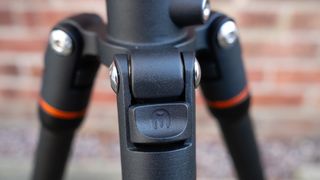
What to look for in a travel tripod
Choosing the best travel tripod isn't just about selecting the smallest and lightest model. Indeed, picking the lightest legs isn't always the best plan. Marginally heavier alternatives won't be a noticeable burden, but they can provide much more rigidity and versatility.
Most of these tripods use a carbon fiber construction to save weight, but this ups the price. Some models also have aluminum counterparts. Each includes a compact ball head, but check carefully: a ball that's too small for a larger DSLR will become a precarious balancing act.
What makes a travel tripod
A neat trick shared by the vast majority of current tripods is that the legs swing fully upwards for stowage. The idea is that you first extend the centre column, then swing the legs up, so that the tripod’s feet end up encircling the head. This reduces the overall carrying length by up to 10cm or 4 inches. Indeed, many of the best travel tripods shrink down to about 30-40cm, making them small enough to fit inside a camera bag or rucksack, rather than needing to be tethered to the outside causing your bag to be unbalanced.
To give them a useful operating height, despite their small carrying size, most travel tripods feature four or even five telescopic sections per leg. Some go further still, with a two-section extending centre column. This naturally enables a greater maximum operating height, so you can be sure no matter how high your camera needs to be it will be able to get the shot you want.
The drawbacks are that each telescoping joint is an area of potential weakness, reducing rigidity, and the bottom leg sections are likely to be quite thin and spindly. A large number of twist or clip locks for all the sections also demands more time for setting up the tripod and folding it down again.
Do I even need a tripod?
Today's very best mirrorless cameras and computational photography modes especially in smartphones and the OM System OM-1 that go a long way to eliminating the need for a tripod. We list 5 reasons why photographers no longer need a tripod that includes super-effective in-body image stablization for handheld shooting even with professional high-resolution cameras, in-camera HDR modes so you no longer need to do multi-shot exposure stacking, plus improved image quality at high ISOs.
However, there are times and photography effects that still require a tripod. Tripods can be crucial for studio photography and for video work in general where you can lock off the camera in position for long periods and free up your hands. The same goes for long exposure photography, staging group photos, plus the times you need free hands to attach or remove accessories from your camera, like lens filters and mics.
Significant advances in camera tech have put the once necessary photography accessory under threat, but there will still be a place for tripods for a long time yet.
How we test Travel Tripods
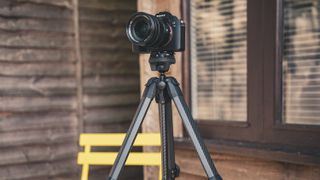
☑️ 10s of tripods reviewed
☑️ 15 years of product testing
☑️ Over 16,000 products reviewed in total
☑️ Nearly 200,000 hours testing tech
Tripods only have a fairly limited number of features. Despite that, we like to make sure we've tested every single part and compared them to others to see where each one stands apart from the rest.
We make sure to test our travel tripods over a period of time using a range of different cameras and lens combinations. Some tripods will be fine with specific cameras, but not others. By testing multiple types, we're able to see how ubiquitous each one is.
The process of folding and unfolding travel tripods is something that travellers have to do all the time. We therefore go through this process numerous times to see how each one feels and functions.
Some tripods have features that are truly unique, such as the articulating center column on the Vanguard VEO 3T+ 234CB. Whatever the feature, we put it through its paces to see if it puts it above its competitors.
We do all of this while travelling around and thinking like photographers on the go. This helps us to make comments that are helpful for making informed buying decisions.
Get daily insight, inspiration and deals in your inbox
Sign up for breaking news, reviews, opinion, top tech deals, and more.

Tim is the Cameras editor at TechRadar. He has enjoyed more than 15 years in the photo video industry with most of those in the world of tech journalism. During his time as Deputy Technical Editor with Amateur Photographer, as a freelancer and consequently editor at Tech Radar, Tim has developed a deeply technical knowledge and practical experience with cameras, educating others through news, reviews and features. He’s also worked in video production for Studio 44 with clients including Canon, and volunteers his spare time to consult a non-profit, diverse stories team based in Nairobi. Tim is curious, a keen creative, avid footballer and runner, and moderate flat white drinker who has lived in Kenya and believes we have much to enjoy and learn from each other.
- Paul HattonFreelance writer
- Mark WilsonSenior news editor
